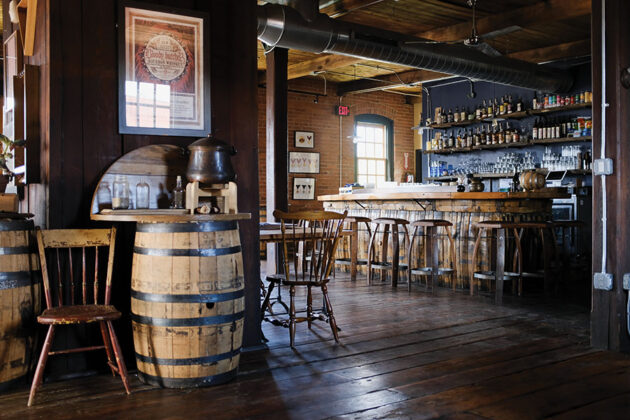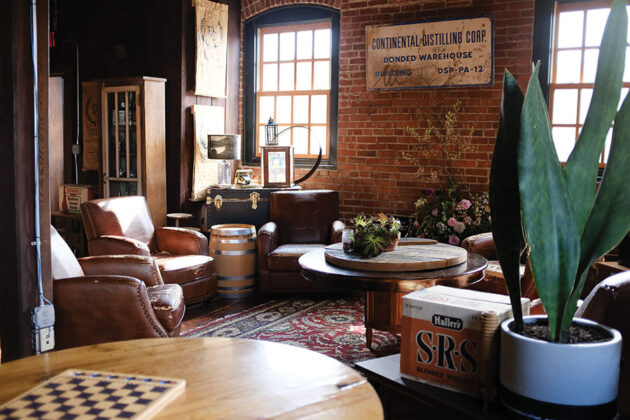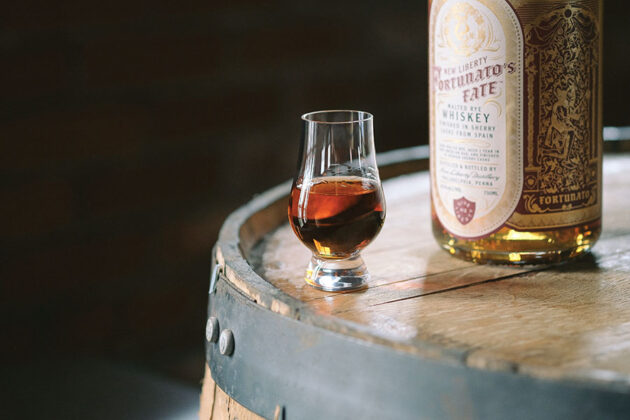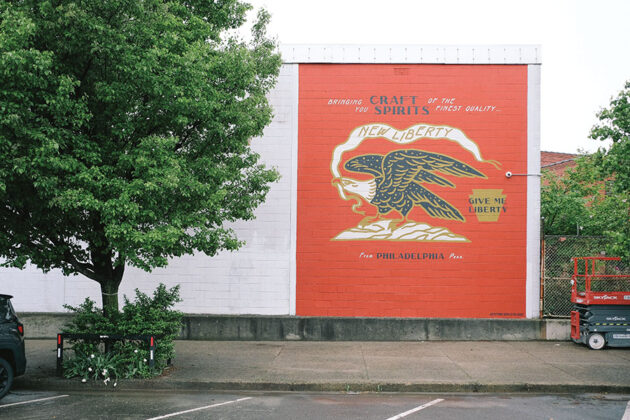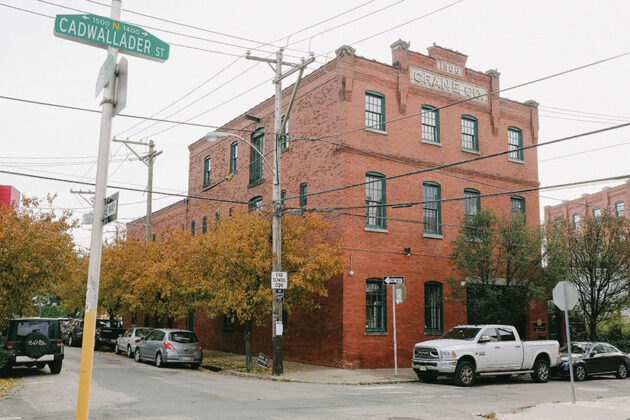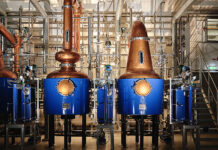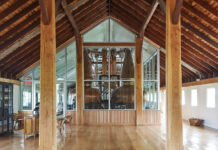In early 2021, New Liberty Distillery’s bottling capacity exploded overnight, going from the ability to fill 14 one-liter bottles in a minute to firing out 150 bottles in the same time frame.
In March, Millstone Spirits Group, the Philadelphia-based company encompassing craft whiskey brand New Liberty Distillery, ready-to-drink canned cocktail line American Liquor Company, and Liberty Belle liqueurs, acquired fellow Pennsylvania liquor brand Faber Distilling. The $1.4 million deal also included the company’s 160,000-square foot production facility, two high-speed bottling lines — and an old piano.
Millstone CEO and President Robert Cassell was perusing the Philadelphia Business Journal when he read a routine legal posting about the Bucks County distillery declaring bankruptcy — and realized the brand’s volume gave it big potential.
“We saw value where others didn’t,” Cassell says. “We felt we could turn around the sins of the past in a positive way.” It’s likely the first time since Prohibition that one Pennsylvania independent distiller acquired another.
Since its inception in 2015, New Liberty has been best known as an innovative artisanal spirits maker. Co-founded by Cassell, the brand is headquartered in a more than century-old stable in the city’s South Kensington neighborhood. In addition to a custom-made still, there’s a bar, tasting room, and a rickhouse for barrel aging whiskeys like Bloody Butcher bourbon, Millstone rye, and the Kinsey heritage label.
The distillery also makes Dreadnaught rum, Powderhorn vodka, and an ever-evolving roster of small-batch liqueurs that showcase Cassell’s and his team’s creative prowess. Liberty Belle Sour Cherry Liqueur, for example, is made using fruit from a Pennsylvania farm. American Picon — inspired by the elusive French apéritif — draws on smoke-tainted grapes from a Napa Valley vineyard. Over the years, the company has taken home numerous awards, including most recently, 11 medals at the 2022 American Distilling Institute Spirits Competition.
Cassell started in the spirits industry two decades ago when he co-founded Philadelphia Distilling, Pennsylvania’s first craft distillery since Prohibition, alongside his uncle Andrew Auwerda and Timothy Yarnall, and helped create the distillery’s signature Bluecoat gin.
Since then, the master distiller has positioned himself as a major player in Pennsylvania’s craft spirits scene. As a member of the Pennsylvania Distillers Guild, Cassell has long been an advocate for the state’s small-batch distillers. Notably, he lobbied to enact legislation that granted small distilleries the right to sell alcohol directly to customers. The law, passed in 2011, was a lifeline at the onset of the pandemic for the state’s roughly 130 distilleries. With the Pennsylvania Liquor Control Board’s Fine Wine & Good Spirits stores temporarily shuttered, craft distilleries’ online and to-go sales boomed.
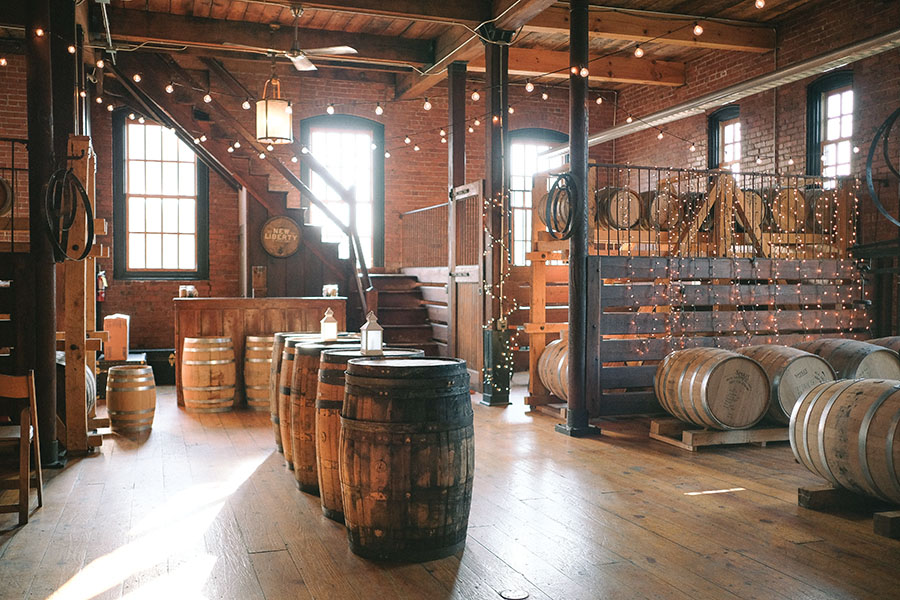
While New Liberty has been successful focusing on heritage, small-batch, and artisanal products, Cassell saw Faber — a brand known for its more accessible vodka, gin, and rum — as an opportunity. Diversifying the portfolio was a main draw. With the addition of Faber brands like Escape Goat hard seltzer and Single Prop Rum, the company now has a collection of wholly different products that exist in a different price tier. These new assets allowed New Liberty to “fill in the spots that were missing before,” according to Cassell.
The variety helps appeal to a wider swathe of consumers, but also, with its range of price points, can lower the barrier to entry for brand adoption. “Everyone’s 21 at one point,” Cassell says. Novice whiskey drinkers who might try an entry-level expression can expand their palates within the brand, creating more long-term, loyal customers.
And while the newly expanded company has a diverse portfolio, with spirits that appeal to a broader audience, he also plans to continue to innovate. Restaurants, for example, that are looking for a rare or obscure spirit (like the original Picon, which isn’t currently exported from France) can look to New Liberty to make it.
“Being able to have those options, that can all be here in one company in Philly, I think that that’s a really, really unique opportunity that doesn’t come along often,” Cassell says.
With diversification also comes growth. The company expects to hire at least 25 new employees, including delivery drivers, roles in finance and operations, and staffing a brand-new marketing department. But growth won’t just come in the form of a higher headcount. Existing employees will have more opportunities, which is something that excites Cassell. Besides a 401(k) and health benefits, people want to work in a place where they can “grow within the company… have opportunities to earn higher wages, and be able to have more resources available to them to help them do their work,” says Cassell. “And that’s what we become with this acquisition — we stage ourselves for that level of growth.”
For distillers and production managers, especially, the new company structure, with its increased product line and two facilities, will offer a unique opportunity to learn and grow.
“If you’re a distiller,” Cassell explains, “one day you might be operating a small pot still at New Liberty, the next day you might have to operate this big 30-foot column still up in [the facility] in the suburbs of Bucks County. It just becomes a really interesting company in what we can do.”
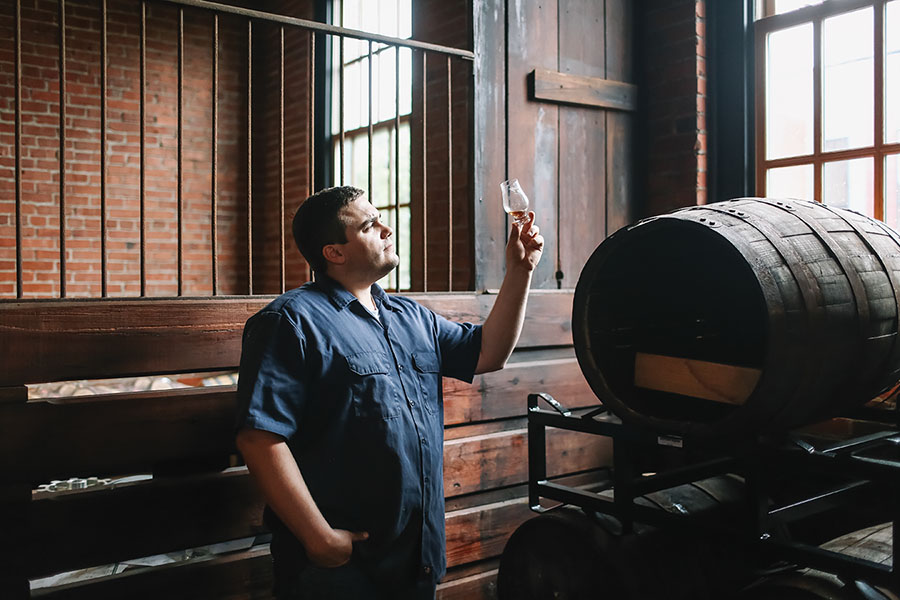
In the short term, Cassell aims to get the right team in place, putting passionate people in the right positions. His long-term goal, though, is to be the mid-Atlantic equivalent of Sazerac, the company behind both the frat house favorite Fireball whiskey and rarified Pappy Van Winkle.
“If you go out and look at the spirits industry right now, you see the tiny craft players, like we were with New Liberty, and then you see the major liquor companies, and there’s nothing in between,” he says, adding that there are at least a half dozen craft beer companies of this size in the region. “But in spirits, I struggle to think of who that is.”
Instead of a boutique company, the goal for New Liberty is to grow into a regional liquor company: “The Faber acquisition helps us get there.”
In June, on the heels of the acquisition, the brand made another big announcement: Malcolm Jenkins joined Millstone Spirits Group as an investor and company board member. The two-time Super Bowl champ and former Philadelphia Eagle will also partner with the distillery for the first-ever whiskey made with ingredients sourced exclusively from Black and Brown farmers. The move underscores that New Liberty is still focused on pushing boundaries while pushing the industry forward.
“I tell the team: We’re now big enough to be stable, be a place you can grow,” Cassell says. “But yet, we’re small enough to be nimble, and innovate and have fun with what we’re doing.”
As for the piano, Cassell is going to clean the neglected instrument and put it in his office.
“Everybody hates that I want to do it, but I don’t care,” he says.
It wouldn’t be the first time the entrepreneur saw value in something no one else did.

